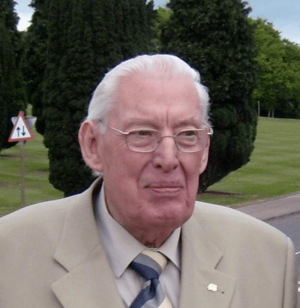Democratic Unionist Party facts for kids
Quick facts for kids
Democratic Unionist Party
|
|
|---|---|
 |
|
| Abbreviation | DUP |
| Leader | Gavin Robinson |
| Deputy Leader | Michelle McIlveen |
| Chairman | The Lord Morrow |
| Lords Leader | The Lord Dodds of Duncairn |
| Secretary | Michelle McIlveen |
| Founder | Ian Paisley |
| Founded | 30 September 1971 |
| Preceded by | Protestant Unionist Party |
| Headquarters | 91 Dundela Avenue Belfast BT4 3BU |
| Ideology |
|
| Political position | Centre-right to right-wing |
| Colours | Red White Navy blue Copper (customary) |
| House of Commons (NI seats) |
5 / 18
|
| House of Lords |
4 / 777
|
| NI Assembly |
26 / 90
|
| Councillors in Northern Ireland |
121 / 462
|
| Councils led in Northern Ireland |
2 / 11
|
The Democratic Unionist Party (DUP) is a political party in Northern Ireland. It is a unionist party, which means it wants Northern Ireland to remain part of the United Kingdom. The DUP was founded in 1971 during a period of conflict called the Troubles. Its founder was Ian Paisley, who led the party for 37 years.
The current leader is Gavin Robinson. The DUP is the second-largest party in the Northern Ireland Assembly. It is also known for being socially conservative, which means it holds traditional views on social issues. The party sees its role as protecting Britishness and the culture of Ulster Protestants. It is also Eurosceptic, meaning it is critical of the European Union, and it supported Brexit.
For many years, the DUP opposed sharing power with Irish nationalist parties. However, in 2007, the DUP agreed to share power with the nationalist party Sinn Féin. This was a major step in the peace process.
History of the DUP
Founding during The Troubles
The DUP was started on September 30, 1971, by Ian Paisley and Desmond Boal. Paisley was a well-known church minister who founded the Free Presbyterian Church of Ulster. The party and the church were closely connected for many years.
The DUP was formed during the Troubles, a long conflict in Northern Ireland. The conflict began partly because of a campaign to end unfair treatment of the Catholic minority. The DUP was more hardline than the main unionist party at the time, the Ulster Unionist Party (UUP). It wanted to strongly defend the union with Great Britain.
In 1973, an agreement called the Sunningdale Agreement tried to create a power-sharing government between unionists and nationalists. The DUP strongly opposed this plan. They joined with other unionists to protest it. In 1974, they helped organize a big strike that stopped the agreement from happening.
The 1980s and 1990s
In the 1980s, the DUP continued to oppose any political deals that involved the Republic of Ireland. In 1985, the British and Irish governments signed the Anglo-Irish Agreement. This gave the Irish government a say in some Northern Ireland matters. The DUP and UUP led a large protest campaign called "Ulster Says No".
During this time, the DUP also helped organize a group called the Third Force. This was a group of loyalist volunteers who wanted to help the police fight the Irish Republican Army (IRA). They held large rallies where men marched in uniform.
In the 1990s, peace talks began, which led to the Good Friday Agreement in 1998. The DUP took part in the early talks but left when Sinn Féin was allowed to join. The DUP opposed the Good Friday Agreement because they did not trust the IRA to give up its weapons. They also disagreed with the early release of prisoners.
Even though they opposed the Agreement, the DUP took part in the new Northern Ireland Assembly elections. They won 20 seats and took two positions in the new power-sharing government.
Becoming the Largest Party
By 2003, the DUP had become the largest unionist party in Northern Ireland. In the Assembly election that year, they won 30 seats. In 2005, they also became the largest Northern Ireland party in the UK Parliament in London, winning nine seats.
In 2006, the DUP signed the St Andrews Agreement. This was a new deal that paved the way for a stable power-sharing government. The next year, the DUP agreed to share power with Sinn Féin. Ian Paisley became the First Minister of Northern Ireland, sharing the top job with Sinn Féin's Martin McGuinness. This was a historic moment for Northern Ireland.
Leadership Changes
Robinson and Foster Years (2008–2021)
In 2008, Peter Robinson took over from Ian Paisley as the leader of the DUP. He served as First Minister until 2015. During his leadership, the party continued to be the largest in Northern Ireland.
In 2015, Arlene Foster became the new leader. She was the first woman to lead the party. She served as First Minister from 2016. In 2017, the power-sharing government collapsed due to a disagreement over a renewable energy plan. The government did not meet again for three years.
After the 2017 United Kingdom general election, the DUP made a deal to support the Conservative government in the UK Parliament. This gave the DUP a lot of influence in London.
In January 2020, the DUP and Sinn Féin agreed to a new deal called New Decade, New Approach. This restored the power-sharing government, and Arlene Foster became First Minister again. However, in April 2021, she announced she was stepping down as leader.
Recent Leadership (2021–Present)
In May 2021, Edwin Poots was elected as the new leader. But he resigned after only three weeks. He was replaced by Sir Jeffrey Donaldson.
Donaldson's main goal was to change the Northern Ireland Protocol. This was a trade deal made after Brexit that created new checks on goods coming from Great Britain to Northern Ireland. The DUP protested the Protocol by refusing to let the Northern Ireland Assembly work. In February 2022, the DUP First Minister resigned, which collapsed the government again.
In January 2024, the DUP announced a deal with the UK government to change the trade rules. This allowed the power-sharing government to be restored.
In March 2024, Donaldson resigned as leader for personal reasons. The party's deputy leader, Gavin Robinson, became the interim leader and was confirmed as the official leader in May 2024.
What the DUP Believes In
Keeping Northern Ireland British
The DUP's main belief is unionism. They want Northern Ireland to stay in the United Kingdom. They see themselves as defenders of British culture and the Ulster Protestant way of life. The party supports the right of groups like the Orange Order to hold parades. They have also opposed laws that would give special status to the Irish language.
Views on Europe
The DUP is a Eurosceptic party. This means they are critical of the European Union. They were the only major party in Northern Ireland to support Brexit in the 2016 referendum. They want to keep easy travel between Northern Ireland and the rest of the UK.
Social and Economic Views
The DUP is known for being socially conservative. The party has strong ties to evangelical Christian churches, like the Free Presbyterian Church of Ulster. For a long time, the party opposed equal marriage rights.
On money matters, the DUP often supports government spending on public services like healthcare. They also support keeping benefits for older people, such as the Winter Fuel Payment. During the cost of living crisis, the party supported a tax on the large profits of energy companies.
DUP Leaders
The DUP has had several leaders since it was founded.
- Ian Paisley (1971–2008)
- Peter Robinson (2008–2015)
- Arlene Foster (2015–2021)
- Edwin Poots (2021)
- Sir Jeffrey Donaldson (2021–2024)
- Gavin Robinson (2024–present)
See also
 In Spanish: Partido Unionista Democrático para niños
In Spanish: Partido Unionista Democrático para niños
- British Isles fixed sea link connections
- Democratic Unionist Party scandals
- List of Democratic Unionist Party MPs
- List of Northern Ireland Members of the House of Lords
 | Precious Adams |
 | Lauren Anderson |
 | Janet Collins |


